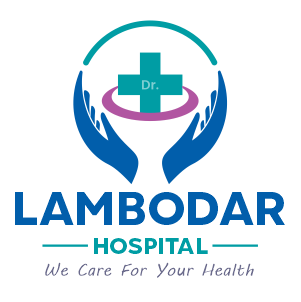Thyroid Specialist in Waluj MIDC

Thyroid Disease
Thyroid disease refers to disorders affecting the thyroid gland, a small butterfly-shaped gland located in the front of your neck responsible for producing thyroid hormones. These hormones play a crucial role in regulating various metabolic processes throughout the body, influencing calorie consumption and heart rate.
When there is an excess of thyroid hormone, it leads to a condition called Hyperthyroidism, while insufficient hormone production results in Hypothyroidism. Although the symptoms of thyroid disorders can be unpleasant, proper diagnosis and treatment can effectively manage most thyroid problems.
At our facility, we are proud to have experienced and skilled Thyroid Specialists in Waluj MIDC, dedicated to providing comprehensive Thyroid Services to patients in need.
Several types of thyroid disorders exist, including:
- Hypothyroidism
- Hyperthyroidism
- Goiter
- Thyroid nodules
- Thyroid cancer
- Hypothyroidism
Hypothyroidism is characterized by insufficient production of thyroid hormones in the body. These hormones play a vital role in regulating the body’s metabolism and energy absorption. When thyroxine levels are low, most bodily functions slow down.
Common symptoms of Hypothyroidism include:
- Joint or muscle pain
- Weight gain
- Dry skin
- Slow heart rate
- Constipation
- Feeling unusually cold when others do not
- Depressed mood
- Hyperthyroidism
Hyperthyroidism is a condition characterized by excessive responsiveness to both Tetraiodothyronine (T4) and Triiodothyronine (T3). To manage this condition, doctors may utilize anti-thyroid and radioactive iodine drugs to suppress the development of thyroid hormones.
Common symptoms of Hyperthyroidism include:
- Poor concentration
- Increased appetite
- Thinning of the skin
- Muscle weakness
- Feeling fatigued
- Experiencing excessive sweating
- Difficulty sleeping
- Goiter
Goiter is the term used to describe the enlargement of the thyroid gland. This gland is shaped like a butterfly and located at the base of your neck, beneath the Adam’s apple. Goiters are usually painless, but a large goiter may cause coughing and difficulty in swallowing or breathing. One of the most common causes of Goiter is iodine deficiency in the diet. In regions where iodized salt is not regularly used, Goiter is more often triggered by over- or under-production of thyroid hormones or by nodules in the thyroid gland.
Common symptoms of Goiter include:
- Tightness in the throat, coughing, and hoarseness.
- Difficulty swallowing.
- Difficulty breathing.
- Hair loss.
- Weight loss.
- Thyroid nodules
Thyroid nodules refer to unusual growths in the thyroid gland, forming lumps that can be found in some individuals. While most thyroid nodules are non-cancerous, some may be cancerous. These nodules can contain tissue, blood-filled material, or other fluids. The thyroid gland consists of two lobes on either side of the windpipe, connected by a tissue band called the isthmus that crosses the front of the throat. Many thyroid nodules grow slowly and are often small when detected by a doctor. Large, firm, fixed, and rapidly growing nodules indicating aggressive thyroid cancers are uncommon occurrences.
Common symptoms of Thyroid nodules include:
- Trouble swallowing
- Anxiety
- Tremor
- Vocal changes
- Nervousness and hyperactivity
- Rapid or irregular heartbeat
- Thyroid cancer
Thyroid cancer is a condition characterized by the development of malignant (cancerous) cells within the thyroid gland’s tissue. These cancer cells result from mutations or changes in the normal thyroid cells, leading to the formation of tumors. Initially, thyroid cancer may not cause any discomfort, but as it progresses, it can manifest as swelling or a lump in the neck. As the cancerous cells continue to grow, they may cause pain and swelling in the neck. Additionally, thyroid cancer can impact hormone release, which controls various bodily functions such as water utilization, heat production, and oxygen regulation.
Common symptoms of Thyroid cancer include:
- Difficulty swallowing
- Cough
- Localized pain
- Lump in the neck
- Changes to your voice, including increasing hoarseness
Thyroid Test:
- Calcitonin
- Thyroglobulin
- Free T4 or free thyroxine (T4)
- Thyroid antibodies
For comprehensive thyroid testing, visit Lambodar Hospital and consult with our experienced Thyroid Specialist in Waluj MIDC. They will guide you through the necessary thyroid tests and provide expert advice based on the results.
Thyroid Treatment:
- Thyroid surgery
- Thyroid hormone pills
- External radiation
If you are experiencing thyroid issues, we welcome you to Lambodar Hospital, where our skilled Thyroid Specialist in Waluj MIDC offers top-notch thyroid treatments to cater to your needs.

